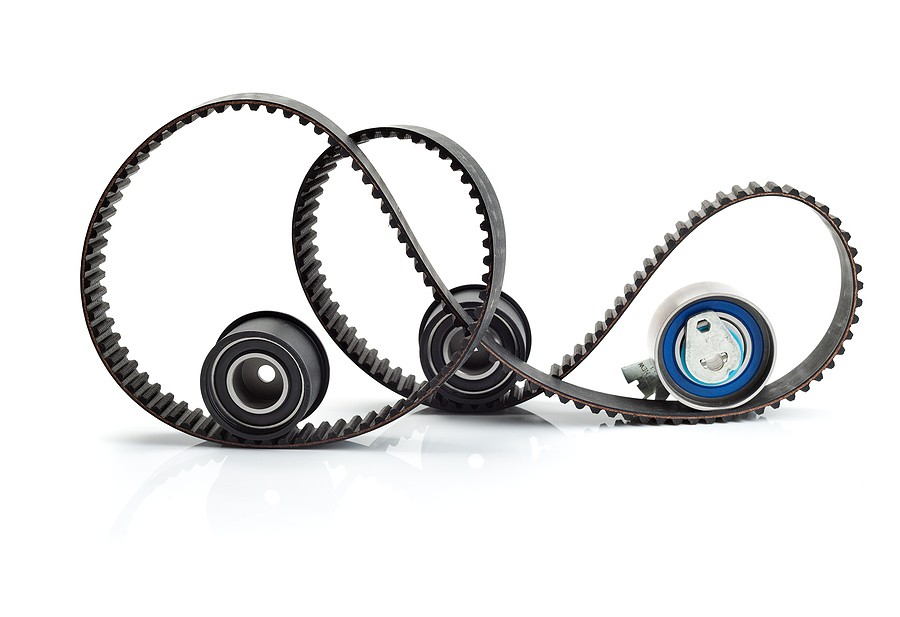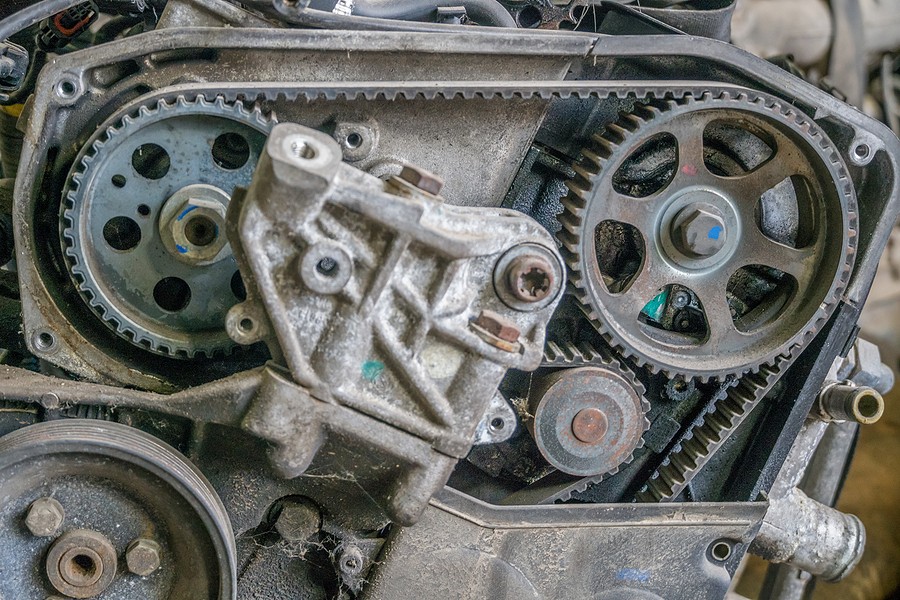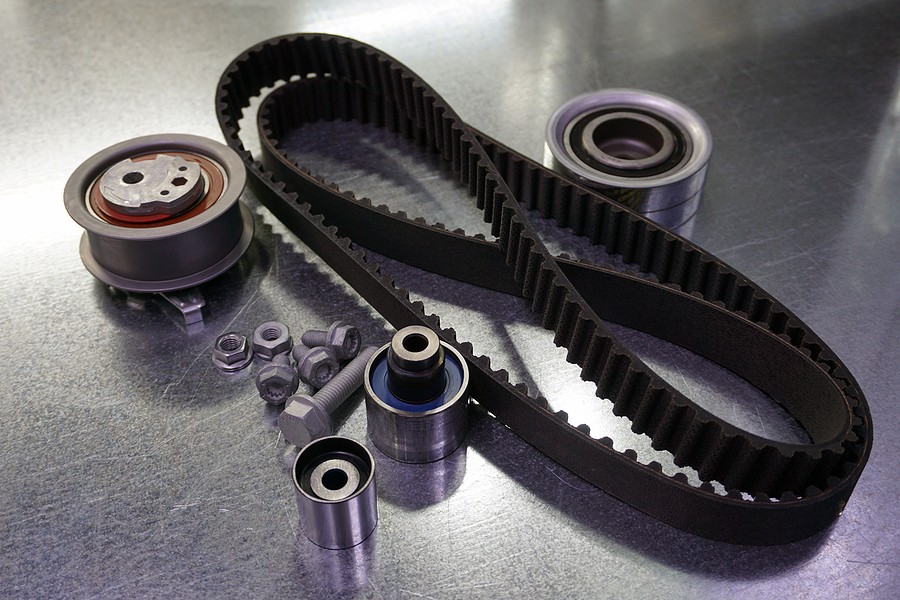The timing belt in a car is a rubber belt that synchronizes the rotation of the crankshaft and camshaft to sync with each other. The timing belt also ensures that the valves open and close at the right time, ensuring proper engine function. In other words, it takes up all these little slack spots throughout an engine's cycle to make sure everything runs smoothly from beginning to end.
When you have a worn-out or broken timing belt, though, you'll usually hear some noise coming from your engine compartment as the teeth on one of these belts grind against another part of your car's innards.
This can be anything from a rhythmic tapping sound when it's only knocking now and then to a high-pitched squeal when it's not working at all. The noise will vary, but the point is that your timing belt breaking or wearing out is never good news.
This article provides five common reasons for timing belt noises and how to get rid of them.
What is a Timing Belt?
The timing belt is a long, flexible belt wrapped around the crankshaft and camshaft. It synchronizes the rotation of these two moving engine parts, ensuring that they remain in sync with one another. This allows the valves to open and close at the right time, ensuring proper engine function.
Think of your timing belt as a very long rubber band that wraps around the main parts of your car's engine. If you've ever stretched a rubber band and released it, you know that it makes a “twang” sound. This is exactly what happens inside your engine when your timing belt stretches too tight or breaks unexpectedly: The teeth on one side of the belt hit the teeth of another part inside your engine, resulting in that “twang” sound.

5 Causes of Timing Belt Noises
When the timing belt starts making weird noises, it usually means that something is wrong. Your timing belt may be worn out or stretched due to normal wear and tear, but it could also be because of one of these five common issues:
1) Broken timing belt
This is the most serious and expensive cause of timing belt noise. If your car's timing belt snaps, you need to replace it as soon as possible – even if you don't hear a noise – because the valves won't open and close at their proper times. Once this happens, major damage can be done to your pistons and engine block, and the odds of your engine seizing go way up.
A broken timing belt usually accompanies a loud, high-pitched grinding noise that gets louder as the car's RPMs increase. If you hear this sound, pull over immediately and shut off your engine, but don't attempt to move the car until you're sure it won't cause further damage.
Your car's timing belt is stretched or broken if it makes any of these noises when you start up your engine, even if the noise goes away after a few seconds:
- A tapping sound now and then
- A rhythmic clicking sound
- A high-pitched squealing sound
- A low-pitched humming sound
2) Worn-out timing belt
When the timing belt is worn out, the teeth on its inside part begin to wear down. As a result, the inside of your engine will sound like it's knocking every time you accelerate or decelerate, and this noise can last for several minutes. This is another noise that gets louder as your RPMs increase.
A worn-out timing belt causes a low-pitched humming noise that lasts for several minutes.
3) Loose timing belt
If your timing belt becomes loose, the engine could end up with too much slack in it. This will cause a tapping noise every time you accelerate or decelerate, and it can also lead to a broken timing belt.
A loose timing belt causes a rhythmic clicking sound that gets louder as the car's RPMs increase.
4) Tensioner pulley is worn down
The tensioner pulley is a cog that puts pressure on the timing belt, allowing it to stretch and contract as necessary. If your tensioner pulley becomes too loose or worn out, your timing belt can become loose and create timing problems: This usually causes a ticking noise rather than anything else.
A loose or worn-out tensioner pulley causes a ticking noise.
5) Misaligned camshaft and crankshaft
If your timing belt is misaligned, it can snap or become loose over time. This will cause a thumping sound every time the engine spins.
A misaligned timing belt causes a rhythmic thumping noise that gets louder as the car's RPMs increase.

How to prevent Timing Belt Noise?
Although most of the mentioned causes for timing belt noise might look nonpreventable, there are some ways to delay or prevent timing belt noise, including:
- Changing your timing belt regularly is the best way to avoid noise issues.
- Maintain proper tensioner pressure by regularly adjusting it. The manufacturers will tell you how much to adjust the tensioner, but this can differ for different vehicles based on their make and model, so make sure you know what's best for your car.
- Keep an eye out for worn teeth on the timing belt, and get them replaced immediately if you see any sign of wear. The inside of your engine will sound like it's knocking every time you accelerate or decelerate, so listen closely to the way your engine sounds when you start up your car in the morning. If something seems off, get it checked out by a mechanic right away.
- If you hear a “grinding” or “squealing” noise while accelerating or decelerating, that could be a sign that it's time to replace your timing belt before further damage is done. Get this fixed immediately because waiting only makes the problem worse in this case.
- Have regular inspections done to check for other issues that might be affecting your timing belt? For example, if the tensioner is adjusted too much or worn out, this could also lead to timing problems.
How to Fix a Worn or Broken Timing Belt?
When you get to a point where the loud timing belt requires replacing it, you'll need to do so immediately. If you have the right level of mechanical skills, you can replace the timing belt by yourself following these steps:
- Firstly, you'll need to drain the engine coolant and remove the drive belts. Next, move on to removing the crankshaft pulley and then jack up your car so you can get under it easily. Finally, unbolt the timing belt tensioner and a wrench or ratchet to loosen the upper radiator hose.
- Remove the water pump pulley by unbolting it using a socket set with an appropriate-sized socket. Remove this next if your vehicle has a balancer system that you also need to replace. At this point, there will be no more bolts holding down your old timing belt.
- You may want to ensure that your new timing belt is put in exactly where your old one was on the crankshaft and camshaft sprockets. Slide it on by hand first, then use a wrench to tighten it clockwise until it feels tight slowly.
- Reinstall all of your engine components in the reverse order that you removed them, paying special attention to tightening bolts down as you go. Make sure that none of your pulleys are too loose or too tight at this point. After refilling your vehicle with coolant, start it up and check for any timing belt noise again.
- If these steps seem too difficult for you, contact a mechanic or service center instead for help with replacing a faulty timing belt. Also, take care to watch for signs of future timing issues if your new belt is faulty.

Causes of Timing Belt Noises FAQs
This section will answer frequently asked questions about timing belt noises.
What sound does a tight timing belt make?
Here are the different types of sounds you'll notice when your timing belt is tight:
- Grinding Noise: This sound is caused when the teeth on the timing belt are worn out. It can be prevented by replacing your timing belt before it's too late.
- Screeching Sound: The screeching noise that you might hear means that your timing belt tensioner or pulleys need to be adjusted. Maintaining and servicing your vehicle can prevent this by tightening your timing belt.
- Loud Noises: This sound means that the timing belt is loose and needs to be replaced right away. Always keep an eye out for these signs of potential problems because it could lead to further damage if you wait too long.
How do I stop my timing belt from squeaking?
If your timing belt is squeaking, you should immediately fix the problem. For small noises, it may be possible to lubricate and tighten the belt until you can get it repaired. However, timing belts that always squeak loudly and without any attempt to fix the problem are signs that your engine might be nearing end-of-life and should be replaced.
How do I stop my timing belt from squealing?
Squealing sounds coming from your vehicle's A/C system could be a sign that your timing belt is slipping or that it needs to be adjusted. You'll need to get this fixed immediately because waiting can cause extensive damage and lead to more serious problems with your engine.
How do I stop my timing belt from ticking?
There are a few reasons why your vehicle might be making a ticking noise, especially if it's a new one. On the other hand, if there are no signs of damage or issues with your vehicle and you hear a ticking noise coming from your engine, this is a sign that there's potential for future problems with your timing belt.
How do I stop my timing belt from whining?
Whining sounds from your engine could be caused by several things, including the exterior belt cover of your timing belt. If you tighten this down, it may reduce the noise until you can fix it properly.
Is it normal to hear a timing belt?
Yes, it's normal to hear your timing belt make noise. However, if the sound doesn't go away or is getting excessively loud when it comes from your engine block, this means that there are problems with your timing belt.
Conclusion
Timing belts are an essential component of many vehicle engines, and they make a lot of noise when there's nothing wrong with them. However, that doesn't mean you can ignore the warning signs or abnormal sounds coming from your engine. If you hear strange noises in your engine block area – especially if they don't go away after tightening down the belt cover exterior parts – it may be time to get professional help for repairs.



